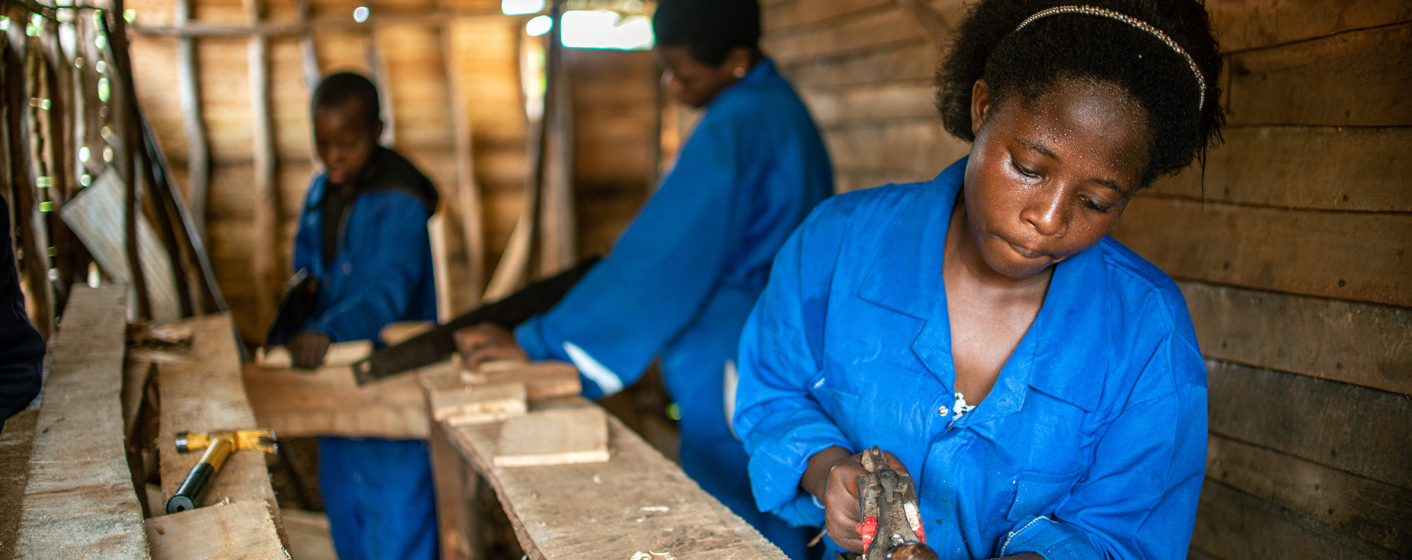
The International Labour Organization (ILO), through the Better Regional Migration Management (BRMM) programme, funded by the UK Foreign, Commonwealth and Development Office (FCDO) organised the second High-Level Labour Migration Advisory Group (LMAG) meeting from 06 - 07 March 2024 in Speke Resort Munyonyo, Uganda under the theme "Strengthening the Common Approach on BLMA and Skills Development Among Labour Migration Advisory Group (LMAG) in East and Horn of Africa" workshop. The workshop provided strategic and policy guidance in the implementation, monitoring, and evaluation process of the BRMM programme, and shared experiences on improving labour migration governance through developing a common approach on bilateral labour migration agreement and skills development in East and Horn of Africa.
The meeting brought together 41 senior officials (7 female) from the Ministries of Labour, employment, labour migration and skills, social partners, national statistics offices, and private employment agencies from Djibouti, Ethiopia, Kenya, South Sudan, Somalia, Tanzania and Uganda. In addition, high-level regional counterparts, including AUC, EAC, and ITUC-Africa attended the workshop.
In the opening session, Mr Alexio Musindo, Director of the ILO Country Office for Djibouti, Ethiopia, Somalia, Sudan, and South Sudan, and Special Representative for AU and ECA emphasised the challenges faced by migrant workers and the need for collective action to improve their conditions, highlighting the potential benefits of well-governed labour migration for migrant workers, their families, and communities. Mr Musindo stressed the importance of ongoing collaboration among member states to strengthen positive outcomes and address persistent challenges, urging stakeholders to reflect on past efforts and develop new initiatives. Furthermore, Mr Richard Bigirwa, Secretary General of the National Organization of Trade Unions, underscored the critical role of labour unions in advocating for workers' rights, particularly migrant workers, and highlighted the demographic and economic significance of labour migration in the region. He outlined key challenges faced by migrant workers and called for concerted efforts from governments, employers, and trade unions to address these challenges effectively. Additionally, Mr. Douglas Opio, Executive Director of the Federation of Uganda Employers, illuminated the importance of sharing best practices and addressing challenges collectively to ensure safe, fair, and mutually beneficial labour migration experiences. He highlighted the crucial role of labour migration in driving economic growth and development in the region, stressing the need for strategic policies and partnerships to maximize its potential and prioritize the reintegration of returning migrant workers. Finally, in his opening remark, Hon. Dominic Mafwabi Gidudu, Minister of State for Labour Gender, and Social Development of the Republic of Uganda, conveyed his appreciation to the ILO and underscored Uganda's efforts to create safe and formal pathways for its citizens seeking employment abroad through the Externalization of Labour Program.
"Labour migration holds the potential to unlock opportunities for inclusive growth and sustainable development while reducing the negative social and human impacts of irregular migration."Hon. Dominic Mafwabi Gidudu, Minister of State for Labour Gender, and Social Development of the Republic of Uganda
Following the opening session, Ms Aida Awel, Chief Technical Advisor, BRMM Programme provided updates on the BRMM Programme, highlighting achievements and challenges, while gallery walks showcased promising practices on labour migration governance from each country, fostering knowledge sharing and mutual learning. Day two delved into discussions on the common approach to labour migration, with a focus on bilateral labour migration agreements (BLMA), and on skills development for labour migration. Panel discussions examined the challenges and opportunities of BLMA and reflected on ways to promote skills partnership for countries in the region to move away from low skilled to semi-skilled and skilled migration.
Throughout both days, there was a resounding emphasis on the necessity of collaboration among governments, employers, trade unions, and recruitment agencies to improve labour migration governance and ensure the protection of migrant workers. The workshop served as a platform for fruitful exchanges, fostering greater cooperation and coordination among LMAG members. At the end of the workshop participants acknowledged the need to have a common approach defining minimum denominators for mutual outcomes when negotiating and concluding BLMA and the need to invest in skills development and improve the skills of migrant workers in the region. Participants further identified country priorities and commitments on labour migration for the next year and departed with a clearer understanding of the challenges and opportunities in labour migration governance, reaffirming their commitment to working collaboratively towards enhancing the well-being and protection of migrant workers in the East and Horn of Africa region.
In closing, Mr. Alexio Musindo, ILO Country Director expressed gratitude to all participants for their active engagement and valuable contributions. He highlighted the importance of continued collaboration and urged stakeholders to translate discussions into concrete actions for the benefit of migrant workers and the region as a whole.


